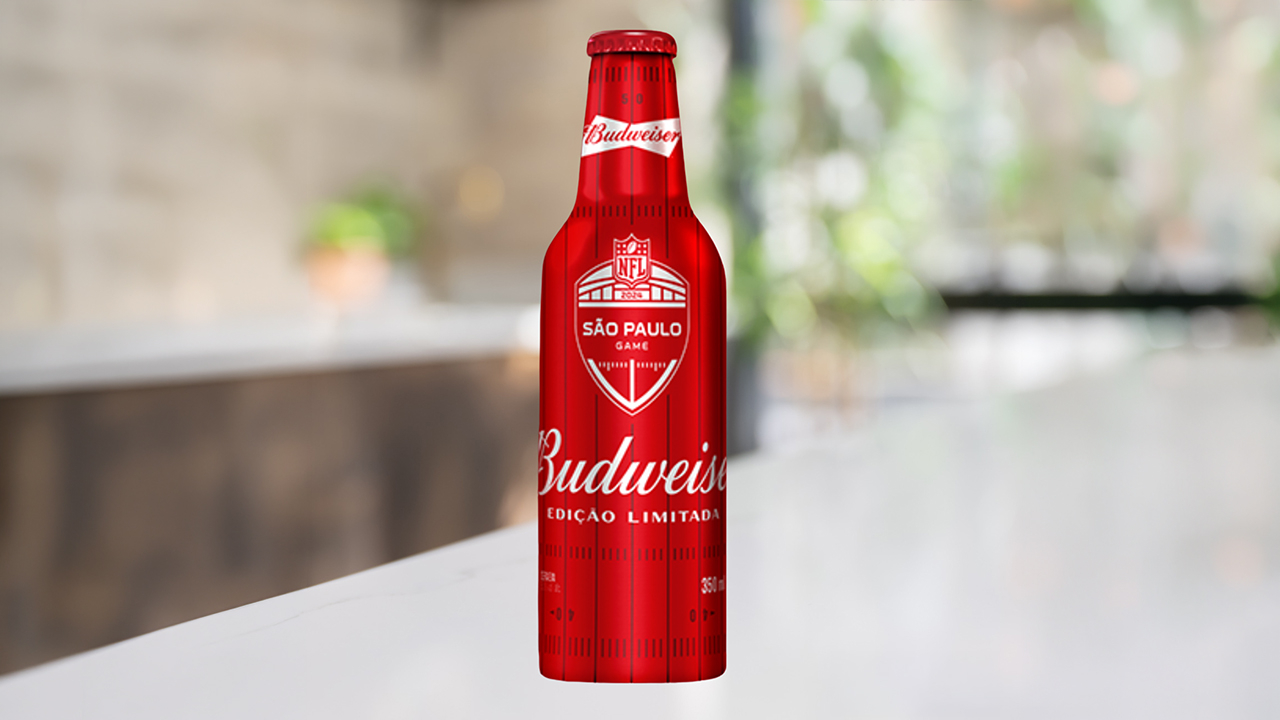Q&A: Cristian Reyes
Cristian Reyes is general director of Mexican converter Mayapack. Founded in 2006, the company began digital printing in 2016. Since then, it has quadrupled in size and diversified into a wide range of label and wide-format products.
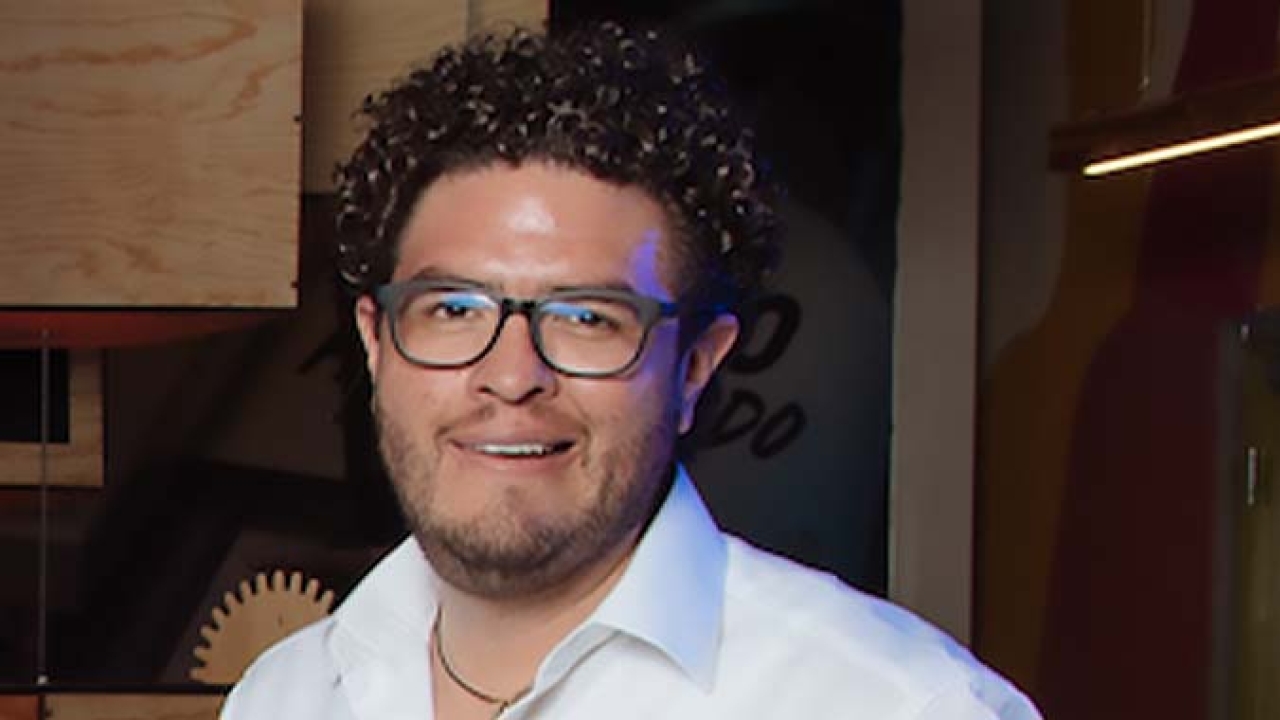
L&L: How has the company evolved since its foundation?
Cristian Reyes: Mayapack was founded in 2006 by my family and me. We had no experience in label printing but saw that there were opportunities in the market in terms of service and quality. We installed a Mark Andy 830 flexo press. To begin with, we took on work for companies that other converters didn’t want – because the runs were short, for example, or other reasons. One of our first jobs was printing the peelable lid for instant soups. It was complex work, with the lid needing to be thermosealed. We took on the challenge, and this really helped us to begin our exponential growth.
As we took on more work, we installed a second Mark Andy 830. Then we upgraded the two 830s to 2200s, and added an Edale FL3 flexo press. For the first ten years, we were a conventional printing company, but because we were getting so much short run work, we began to investigate digital printing. In 2016, we installed an HP Indigo digital press. It allowed us not only to serve our big clients with high quality short-run work, but also to elevate the brand image of our smaller customers so that their labels were of the same quality as the bigger brands. There are many examples of small companies who began to work with us and who have grown into important brands in their segment.
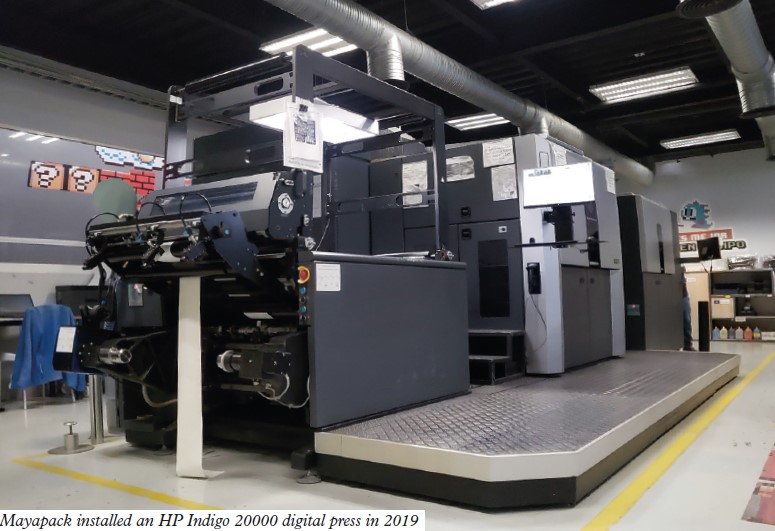
L&L: What does the company’s production set-up look like today?
CR: Today we have two plants – one for flexo, which represents 60 percent of our business, and one for digital, which is 40 percent of the business. On the conventional side, alongside the Mark Andy and Edale flexo press, we run shrink sleeve equipment from Karlville and finishing machinery from Prati. Eighty percent of our flexo work is producing self-adhesive labels, with some in-mold labels and some shrink sleeves.
On the digital side, running an HP Indigo 6800 and the HP Indigo 20000 installed in 2019, 80 percent of what we produce is in-mold labels, with shrink sleeves the next biggest area. We also run converting equipment from Brotech.
The next step, with the HP Indigo 20000, will be to produce flexible packaging.
L&L: What has been the impact of digital printing on the business?
CR: Since the installation of the first HP Indigo press in 2016, the company has quadrupled in size. It has been an exponential change for our company.
In Mexico, the economy is largely driven by small and medium sized businesses, who often don’t have a large agency helping them to launch a brand into the market. So as well as the HP Indigo 6800, we also installed an HP Indigo Latex press for wide format work. We started our own in-house creative department, and began to use our digital technology to offer our clients not only labels – which we could design for them ourselves if needed – but any kind of printed product they wanted: marketing materials, special promotions, branding and decoration for their offices, etc. This was only possible
because of digital technology. Digital allows easy production of samples and mock-ups, which helps the creative process.
Our business is very digitalized, very automated, so yes we do cultivate an atmosphere of a digital start-up and that culture is present in our staff and also in the way our offices are decorated
So digital wasn’t just the addition of a complementary process for Mayapack, but the creation of whole new areas of business. Indeed, for us, flexo is now a complement to digital, rather than the other way around. The biggest headache for a client is their short runs, not their long runs.
L&L: And the additional of digital also saw you move into in-mold label production.
CR: We started producing in-mold labels in 2016, with the HP Indigo press, which was another great point of diversification. Yupo, who supplied us with the materials, was a great help to us. Within two years, in-mold labels were 50 percent of our production.
People are often afraid of entering in-mold. It is perceived as complicated. But the technology has improved a great deal in recent years. The truth is, it’s not very complicated. For clients, costs are competitive compared to offset. And there is the sustainability aspect: the lack of adhesive means that in-mold labels are easily recycled. This and the quality are key arguments we use to convince clients to switch from self-adhesive.
The key markets for our in-mold labels are lubricants and promotional work. We can offer quick turnaround, which is particularly important for promotional labels. And we are known for our quality, so these have been advantages.
L&L: How have you integrated your digital production into the company’s workflow?
CR: If the first revolution in the company was the additional of digital, the second was our installation of a Label Traxx MIS in 2019.
Our growth had been so fast that it was difficult to stay on top of all the information surrounding each job. The way we were costing our work made it difficult to know exactly how profitable each job was. The Label Traxx software allows us to see all the information from every facet of our production in real time and to know the exact cost of producing each job. It gives us control over all the data from every area of the business and helps us to make informed decisions.
Immediately upon installing the system, we could see that some of our jobs were less profitable than others, and that some were quite inefficient in terms of not using our production equipment to its full capacity. The cost analysis and business metrics modules were particularly useful in this area. We were able to improve the efficiency of our production.
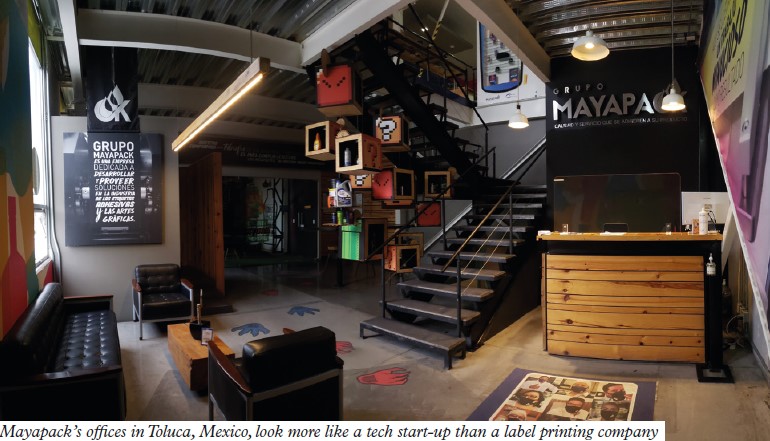
Part of the appeal of the Label Traxx system is that it is specifically designed with flexo converters in mind, but also for digital. The system’s evolution from flexo towards digital matches our own. Label Traxx adapts itself very well for both technologies.
Since we installed Label Traxx system, we have entered 70 percent more orders, or tickets. The speed of generating tickets for our digital presses has risen by 90 percent. With digital printing, you can group different jobs together quite effectively and print them at the same time. So we are much more efficient.
We can also measure with much more precision the downtime involved with every production order. We’ve reduced that downtime to just 3 percent of what it was prior to installing the system.
Since the installation of the first HP Indigo press in 2016, the company has quadrupled in size
And we have reduced our delivery times by 50 percent, just thanks to improved administration.
Mayapack would not be doing what we are doing at the moment without the combination of these technologies: HP Indigo digital presses and Label Traxx MIS.
L&L: Do you have plans for further investment in new technology in the near future?
CR: The main focus now is to complement our existing technology. For example, we might invest in more finishing equipment to allow different kinds of embellishment. And there might be some investment to aid our move into flexible packaging production.
L&L: Do you envisage expanding your business abroad?
CR: Yes, but I see it a little differently to the usual model of creating a global network of printing plants through expansion or acquisition. I see it taking place through a digital platform – sending products on-demand, directly to consumers around the world. Or it could happen through a partnership with a company abroad, to whom we send an order to be printed locally, for example. So more of a digital version of expansion.
At the moment, less than five percent of our production is exported, mainly to Central America and the Caribbean.
L&L: What initiatives has the company undertaken to improve the environmental sustainability of its production?
CR: We are conscious that label printers produce a lot of waste. So we are very committed to caring for the environment. We are developing a full eco-friendly program, involving all parts of the company, to help us reduce waste and energy consumption, and use sustainable materials.
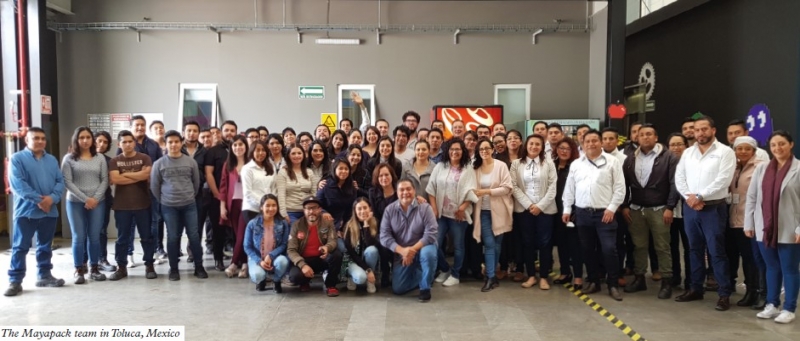
We offer our clients products that are certified as being environmentally friendly. All our waste is collected, and instead of selling it on we donate it to an association which recycles it. It is one of the advantages of producing in-mold labels, which are an important and growing part of the business. They can be recycled and reused.
L&L: What has been the impact of the pandemic on Mayapack over the past 18 months?
CR: The first priority was the well-being of our staff. Health is not negotiable. Everyone who did not have to be in the plant moved to working from home. This is still the case, and will continue in the future. We have a young workforce who are technology-savvy and were able to adapt quickly and efficiently to remote working.
In terms of business and production, the company has grown during the pandemic. We have had some clients stop ordering from us, order less or go out of business, unfortunately. But two of our biggest end-user markets are home and personal care, brands which produce cleaning products, sanitizer gel etc, and orders from these companies grew a great deal. Our strategy of producing a diverse product range for a wide variety of markets helped us. Fortunately, we were able to not only keep all our staff, but add new employees.
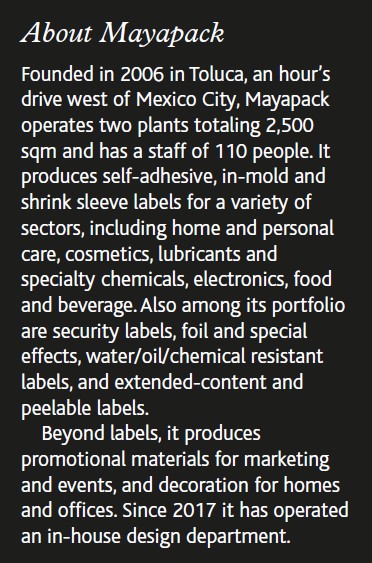
L&L: Mayapack’s offices look more like a tech start-up than an ink-stained printing plant. You mentioned that your workforce is young. How would you describe Mayapack’s culture?
CR: I’m 39, so I was quite young when we started the business in 2006. It’s easy for me to relate to the younger generations and put myself in their shoes. Among our administrative staff, the average
age is under 30. Some of our creative team are just 20 or 21. What’s important is empathy in leadership, so you help to create in your team a strong emotional bond with the work they are doing.
Employees are productive because they are happy. This is what we are always looking for. We are all friends.
We have a human resources department that focuses on the emotional and physical health of our employees, and meeting their needs with empathy. We create career plans so our staff understand
where they are and where they can be in the future. This provides them with a level of security and certainty.
For clients, the cost of in-mold label is competitive compared to offset. And there is the sustainability aspect: the lack of adhesive means that in-mold labels are easily recycled. This and the quality are key arguments we use to convince clients to switch from self-adhesive
Most of our leadership roles are filled by people who have been promoted from within Mayapack. We have recruited externally for certain strategic roles, but only in very specific cases. So the development of our staff is a hugely important part of my management.
It can be difficult to attract young people into the label industry. There is sometimes a certain stigma attached to manufacturing, and there is a perception that our industry is all about tools and machines. But the reality is that our business is very digitalized, very automated, so yes we do cultivate an atmosphere of a digital start-up and that culture is present in our staff and also in the way our offices are decorated.
We know that our main asset is our people, and so everything we do is as a consequence of that.
Stay up to date
Subscribe to the free Label News newsletter and receive the latest content every week. We'll never share your email address.

